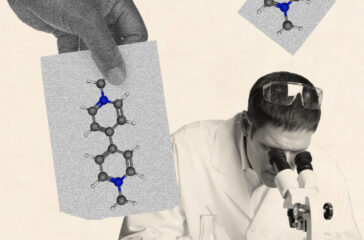Science takes center stage in court hearing over paraquat and Parkinson’s disease
By Carey Gillam
Testimony is underway this week in a key federal court hearing aimed at examining scientific evidence about allegations that a widely used weedkiller called paraquat causes Parkinson’s disease.
The outcome of the hearing, which began Monday and runs through Thursday in East St. Louis, Illinois, is critical for thousands of people with Parkinson’s who are suing paraquat maker Syngenta AG and former paraquat distributor Chevron.
The plaintiffs claim scientific research shows that exposure to paraquat significantly increases the risk of Parkinson’s disease, but instead of warning users the companies prioritized paraquat sales over human health. The first trial is scheduled to start in October.
When this week’s hearing concludes, US District Court Chief Judge Nancy Rosenstengel will determine whether or not the plaintiffs’ experts and their scientific analyses will be allowed as evidence in the upcoming trials. Syngenta and Chevron are asking the judge to bar each of the plaintiffs’ scientific experts from testifying, saying their experience is lacking and their analyses are deeply flawed. If the judge agrees, the plaintiffs’ cases could be virtually unwinnable.
More than 4,600 plaintiffs are part of the multidistrict litigation (MDL) being overseen by Rosenstengel. More cases are pending in different jurisdictions around the US.
Syngenta and Chevron deny paraquat causes Parkinson’s and are fighting the lawsuits. The companies say the weight of scientific evidence demonstrates no causal link between the chemical and the disease.
Plaintiff’s lawyers told the judge their case will rely in part on years of animal studies showing that paraquat interacts in the brain to kill specific cells in a manner that is a hallmark of Parkinson’s disease. Human studies also support their case, the lawyers said. When the cases go to trial, they plan to present testimony from several expert witnesses supporting their allegations.
On Tuesday, the hearing turned to testimony by one of those expert witnesses – Cornell professor of epidemiology Martin Wells. Under oath, Wells told the judge that his analysis of years of published research led him to conclude that people exposed to paraquat have a risk of developing Parkinson’s disease that is substantially higher than for people not exposed to the weed killer.
Wells calculated an odds ratio of 2.8 with respect to paraquat’s causal relationship to Parkinson’s disease, meaning the risk of disease resulting from paraquat exposure was 180 times higher than the odds absent that exposure.
 EWG
EWG
![High_res_image-Syngenta_Group_-_HQ_-_Basel_-_Switzerland[1] High_res_image-Syngenta_Group_-_HQ_-_Basel_-_Switzerland[1]](https://www.thenewlede.org/wp-content/uploads/2023/05/High_res_image-Syngenta_Group_-_HQ_-_Basel_-_Switzerland1-1024x682-364x240.png)






